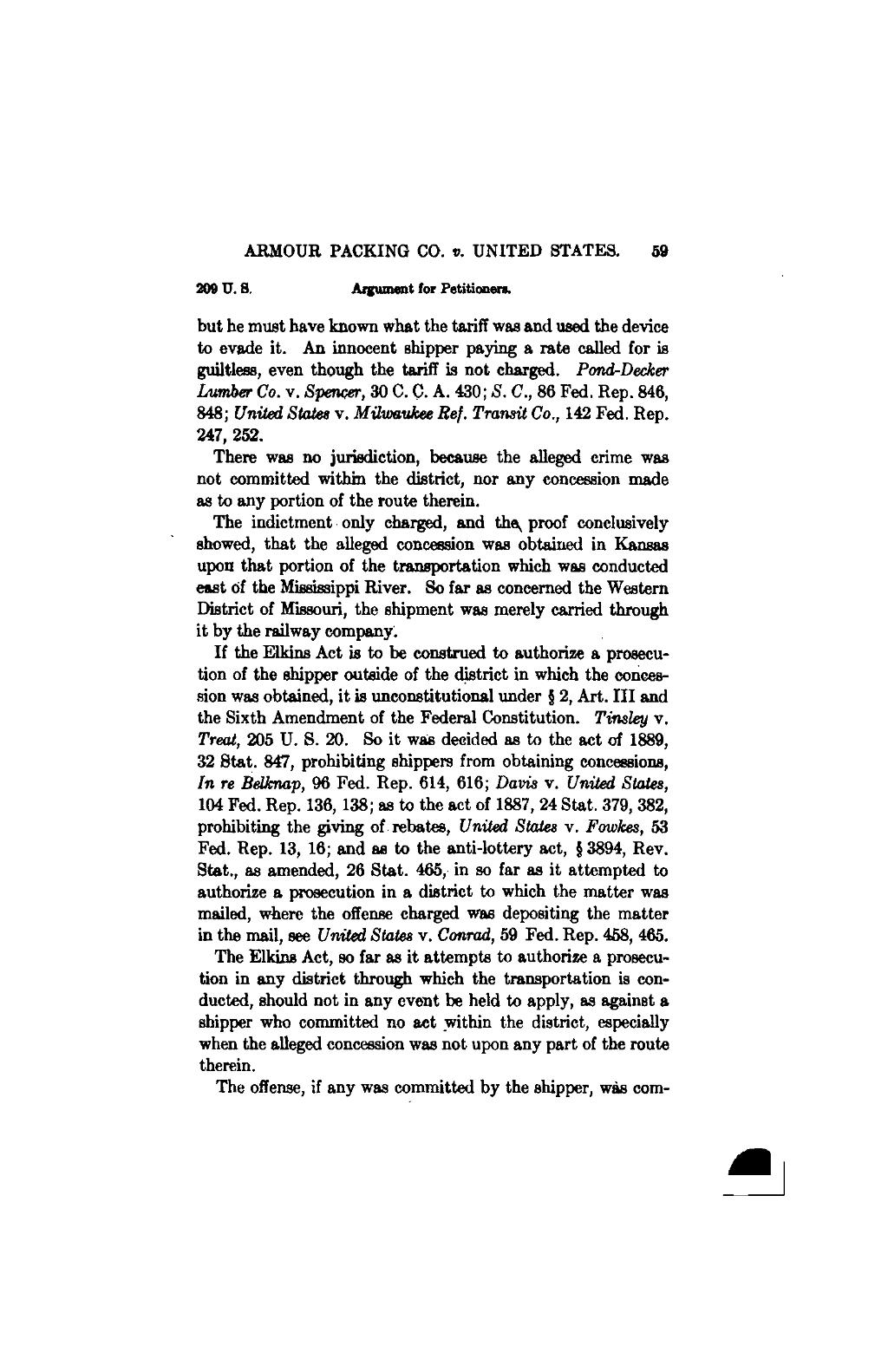20? U.S. A?nt for Petitlonera but he must have known what the tariff was and used the device to evade it. An innocent shipper paying a rate called for is guiltless, even though the tariff is not charged. Po'?i-Dec2er Lurnb? Co. v. $?, 30 C. C. A. 430; S.C., 86 Fed. Rep. 846, 848; U,/ted $ta? v. M//? Be[. Tra?.,?/t Co., 142 Fed. Rep. 247, 252. There was no jurisdiction, because the alleged crime was not committed within the district, nor any concession made as to any portion of the route therein. The indictment. only charged, and th? proof conclusively showed, that the alleged concession was obtained in ? upon that portion of the transportation which was conducted e?st Of the Mi?i?ippi River. So far as concerned the Western District of IT?ssouri, the shipment was merely carried through it by the railway company? If the Elkins Act is to he construed to authorize a prosecu- tion of the shipper outside of the district in which the conces- sion was obtained, it is unconstitutional under � Art. III and the Sixth Amendment of the Federal Constitution. Tinsley v. Treat, 205 U.S. 20. So it was deeided as to the act of 1889, 32 Star. 847, prohibiting shippers from obtaining coneessious, In re Be)A'?p, 96 Fed. Rep. 614, 616; Davis v. United ?qtates, 104 Fed. Rep. 136, 138; as to the act of 1887, 24 Star. 379, 382, Fed. Rep. 13, 16; and as to the anti-lottery act, �94, Rev. St?t., as amended, 26 Stat. 465,. in so far as it attempted to authorize a pr?ecution in a district to which the matter was mailed, where the offense charged was depositing the matter in the mail, see Un/ted $tat? v. Conrad, 59 Fed. Rep. 458, 465. The Elkins Act, so far as it attempts to authorize a prosecu- tion in any district through which the transportation is con- ducted, should not in any event be held to apply, as against a shipper who committed no act .within the district, especially when the alleged concession was not upon any part of the route therein. The offense, if any was committed by the shipper, w?s com-
�
